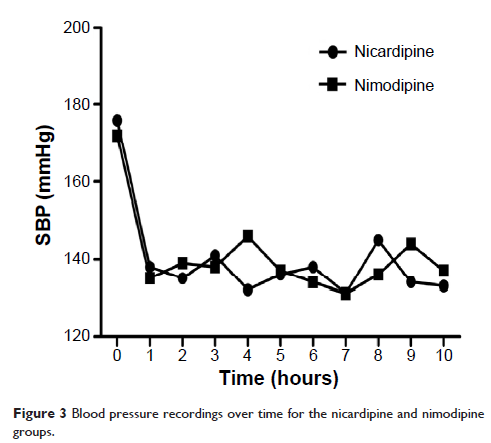109669
论文已发表
注册即可获取德孚的最新动态
IF 收录期刊
- 3.4 Breast Cancer (Dove Med Press)
- 3.2 Clin Epidemiol
- 2.6 Cancer Manag Res
- 2.9 Infect Drug Resist
- 3.7 Clin Interv Aging
- 5.1 Drug Des Dev Ther
- 3.1 Int J Chronic Obstr
- 6.6 Int J Nanomed
- 2.6 Int J Women's Health
- 2.9 Neuropsych Dis Treat
- 2.8 OncoTargets Ther
- 2.0 Patient Prefer Adher
- 2.2 Ther Clin Risk Manag
- 2.5 J Pain Res
- 3.0 Diabet Metab Synd Ob
- 3.2 Psychol Res Behav Ma
- 3.4 Nat Sci Sleep
- 1.8 Pharmgenomics Pers Med
- 2.0 Risk Manag Healthc Policy
- 4.1 J Inflamm Res
- 2.0 Int J Gen Med
- 3.4 J Hepatocell Carcinoma
- 3.0 J Asthma Allergy
- 2.2 Clin Cosmet Investig Dermatol
- 2.4 J Multidiscip Healthc

已发表论文
在对脑出血患者的高血压治疗中采用尼莫地平 (Nimodipine) 静脉给药的疗效和安全性
Authors Li YQ, Fang W, Tao L, Li M, Yang YL, Gao YF, Ge SN, Gao L, Zhang B, Li ZH, Zhou W, Wang BL, Li LH
Published Date May 2015 Volume 2015:11 Pages 1231—1238
DOI http://dx.doi.org/10.2147/NDT.S76882
Received 2 November 2014, Accepted 12 December 2014, Published 19 May 2015
Background: Nicardipine (NC) is the most commonly used antihypertensive drug in
neurological patients with hypertension. Although nimodipine (NM) is widely
used to treat cerebral vasospasm in patients with aneurysmal subarachnoid
hemorrhage, trials exploring its antihypertensive effect after intravenous
administration in subjects with intracerebral hemorrhage (ICH) are scarce.
Methods: A retrospective study was carried out to compare the safety and efficacy of NC and NM administered intravenously in patients with ICH. Therapeutic responses were assessed by achievement of goal blood pressure (BP); use of additional medications for BP control; proportion of time spent within goal; variability in BP; time to goal BP; number of dose adjustments; variability in ICH volume, Glasgow Coma Scale score, and intracranial pressure; and drug-related complications.
Results: A total of 87 patients were eligible for analysis (n=46 [NC]; n=41 [NM]), and baseline characteristics between groups were similar. Both agents were effective in achieving goal BP during infusion, with 93.5% and 87.8% patients in the NC and NM groups achieving goal, respectively. Fewer additional medications were needed to control BP in the NC group. BP variability was similar and no differences were observed in the mean time to goal BP and mean numbers of dose adjustments between both groups. Interestingly, intracranial pressure declined (P =0.048) during NC administration but increased (P =0.066) after NM treatment. Finally, the incidences of hematoma expansion, neurological deterioration, and adverse drug events were similar in both groups.
Conclusion: NM is effective and safe for BP control in patients with ICH.
Keywords: nicardipine, blood pressure, intravenous infusion
Methods: A retrospective study was carried out to compare the safety and efficacy of NC and NM administered intravenously in patients with ICH. Therapeutic responses were assessed by achievement of goal blood pressure (BP); use of additional medications for BP control; proportion of time spent within goal; variability in BP; time to goal BP; number of dose adjustments; variability in ICH volume, Glasgow Coma Scale score, and intracranial pressure; and drug-related complications.
Results: A total of 87 patients were eligible for analysis (n=46 [NC]; n=41 [NM]), and baseline characteristics between groups were similar. Both agents were effective in achieving goal BP during infusion, with 93.5% and 87.8% patients in the NC and NM groups achieving goal, respectively. Fewer additional medications were needed to control BP in the NC group. BP variability was similar and no differences were observed in the mean time to goal BP and mean numbers of dose adjustments between both groups. Interestingly, intracranial pressure declined (P =0.048) during NC administration but increased (P =0.066) after NM treatment. Finally, the incidences of hematoma expansion, neurological deterioration, and adverse drug events were similar in both groups.
Conclusion: NM is effective and safe for BP control in patients with ICH.
Keywords: nicardipine, blood pressure, intravenous infusion
